Unlicensed for travel: how the quarantine and border-closure have affected dogs from the Topa shelter

The Bagira Animal Protection Fund was opened in Abkhazia in 2016, and during this time the Fund’s employees have placed more than 700 dogs from the Republic, not only in Russia, but also in Europe, the USA, and Canada.
After the closure of the state-borders of the Russian Federation due to the threat of the spread of coronavirus-infection, sending dogs abroad became impossible, but these are not the only difficulties that the Bagira Foundation and the Topa Dog Shelter in the Gagra District are experiencing.
At the start
Two years after the opening of the Bagira fund, so named by its head, Saida Otyrba, in memory of her poisoned pet, construction of the Topa dog shelter began in one of the villages of the Gagra region.
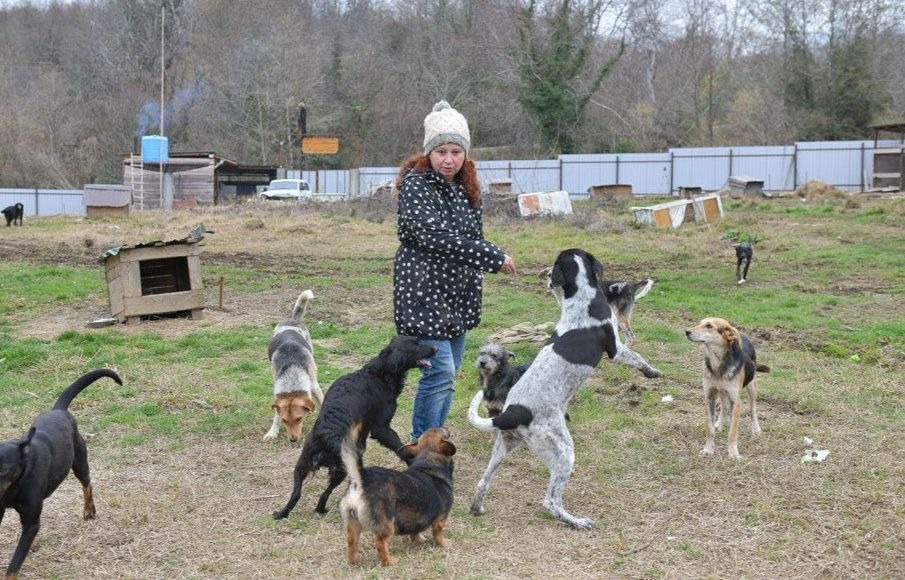
Saida Otyrba, Bagira Animal Protection Fund with the dogs at the shelter.
Currently, in this shelter there are about 150 dogs, ten of which are "on suitcases", but because of the closure of the border along the Psou River, they can’t get to their new owners. Just a few days before the introduction of these measures, Saida managed to send four dogs to Russia.
“Ten dogs are ready - one of them should go to Germany, the rest to several Russian cities. In addition, after the border was closed, we began to have difficulties getting rabies-, enteritis-, and plague-vaccines. That is, we now have nothing with which to vaccinate and treat them for worms. But the main problem is that we cannot carry out sterilisations, because there is no anaesthesia,” Otyrba shared with us.
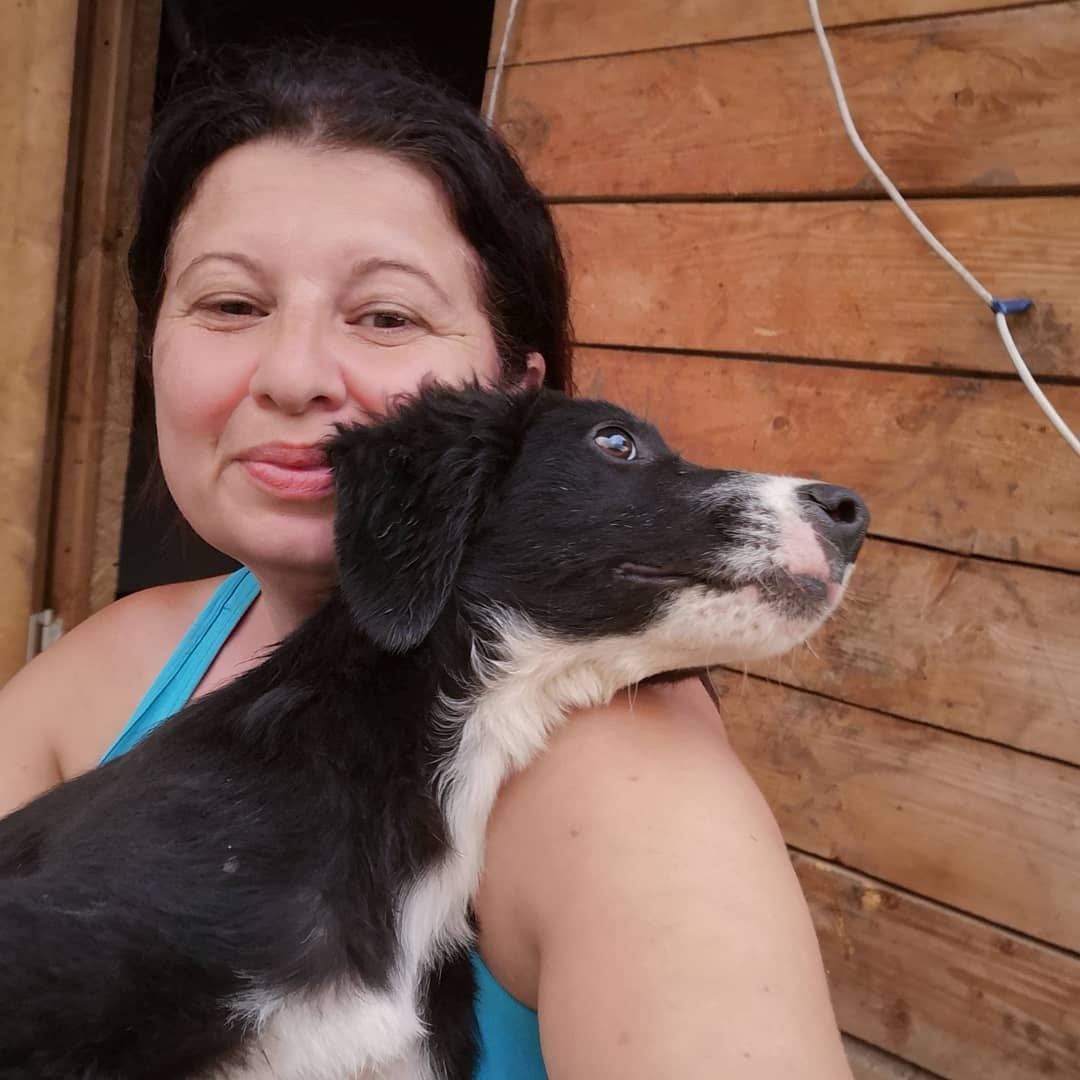
Saida Otyrba | © Bagira Facebook page
According to Saida, the dogs must be sterilised at the age of six to seven months, and this procedure was carried out at Topa by veterinarians every three months. If difficulties with the supply of anaesthesia continue, then the shelter will turn into a maternity hospital for dogs.
The staff at the shelter are trying to control the situation by sorting the wards into sterilised, castrated and those for which there was no time to carry out this procedure, but this is not so effective, since it is impossible to keep track of the "romantic" relations of animals during walking.
If in the near future it will not be possible to resume sending the dogs abroad, Saida added, she will be forced to suspend the work of rescuing animals caught on the streets. Usually, the place of the departed dogs was taken by those which still wander in search of food in the cities and villages of the country. Such an unfolding of events, she is sure, will certainly lead to an increase in the population of dogs and total shooting of them across the entire territory of Abkhazia.
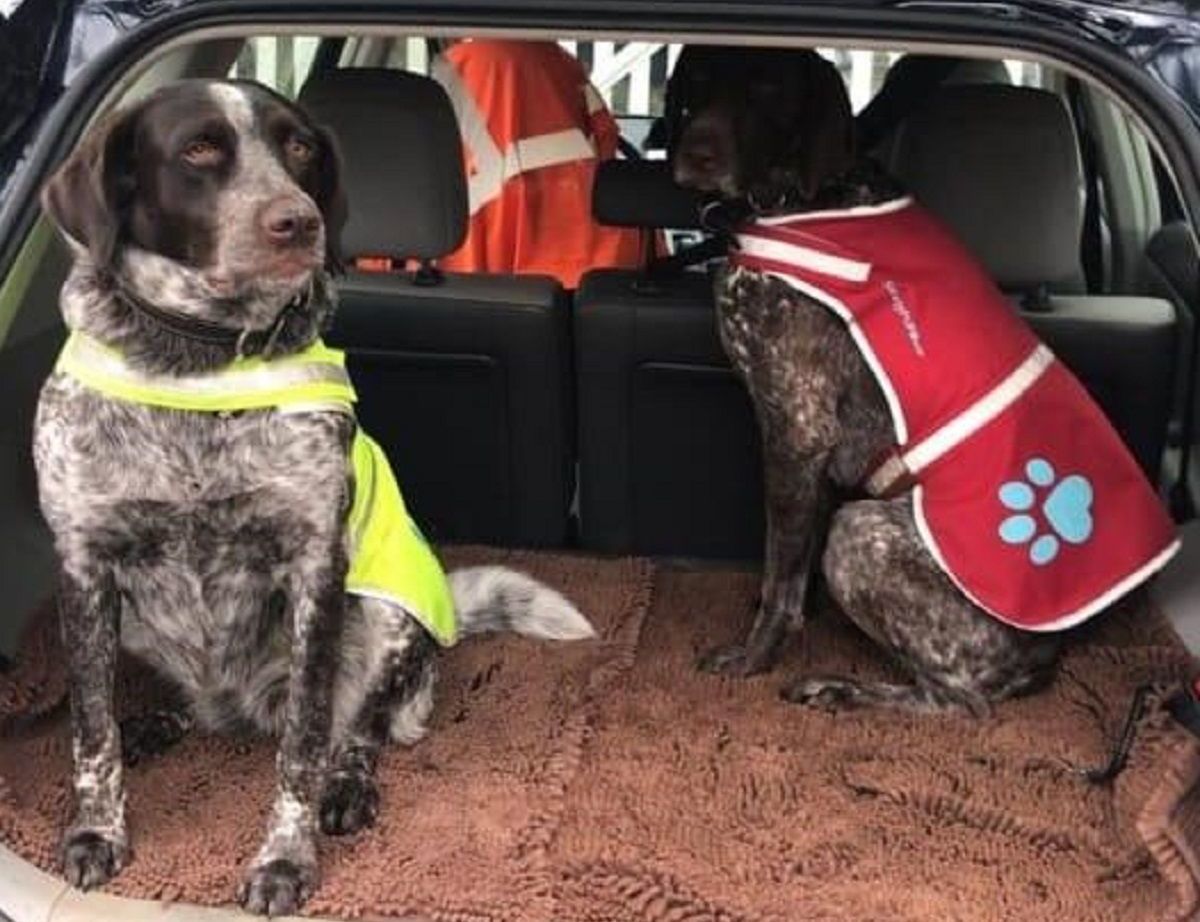
Pets before sending to new owners © Bagira Foundation
Not far removed is the problem with food. The last donation from caring entrepreneurs in the amount of 60 thousand roubles is at the end. Food is still available for purchase in Abkhazia, but due to a sharp reduction in donations, funds for this are also insufficient.
“Now everything is like on a powder-keg, and people don’t know what awaits them round the corner. If earlier someone could donate a thousand roubles, today they are trying to save, and so they send less,” Otyrba noted.
The whole world is one home
To date, dogs from Abkhazia have become family-members in dozens of cities in Russia, as well as in Germany, the USA, Canada, Holland, Israel, Switzerland, the Czech Republic - and this is by no means a complete list. Saida Otyrba admitted that sending animals abroad is a difficult and painstaking task. To begin with, animals must be vaccinated on site, after which they must be quarantined. Then a passport is issued for them; they are sterilised, and everything that is necessary for obtaining permission to leave is submitted.
At the same time, Saida and her assistants communicate with potential owners over the course of one or two months to discover what kind of people they are, what their pet is for, whether they have conditions appropriate for keeping pets, and the extent to which they are responsible persons.
If this whole procedure is completed, the dog is sent to Moscow, where it is chipped. Next, you need to find a companion for it, and help comes from subscribers of the Topa shelter via social networks, register the animal for themselves and accompany it to its destination.
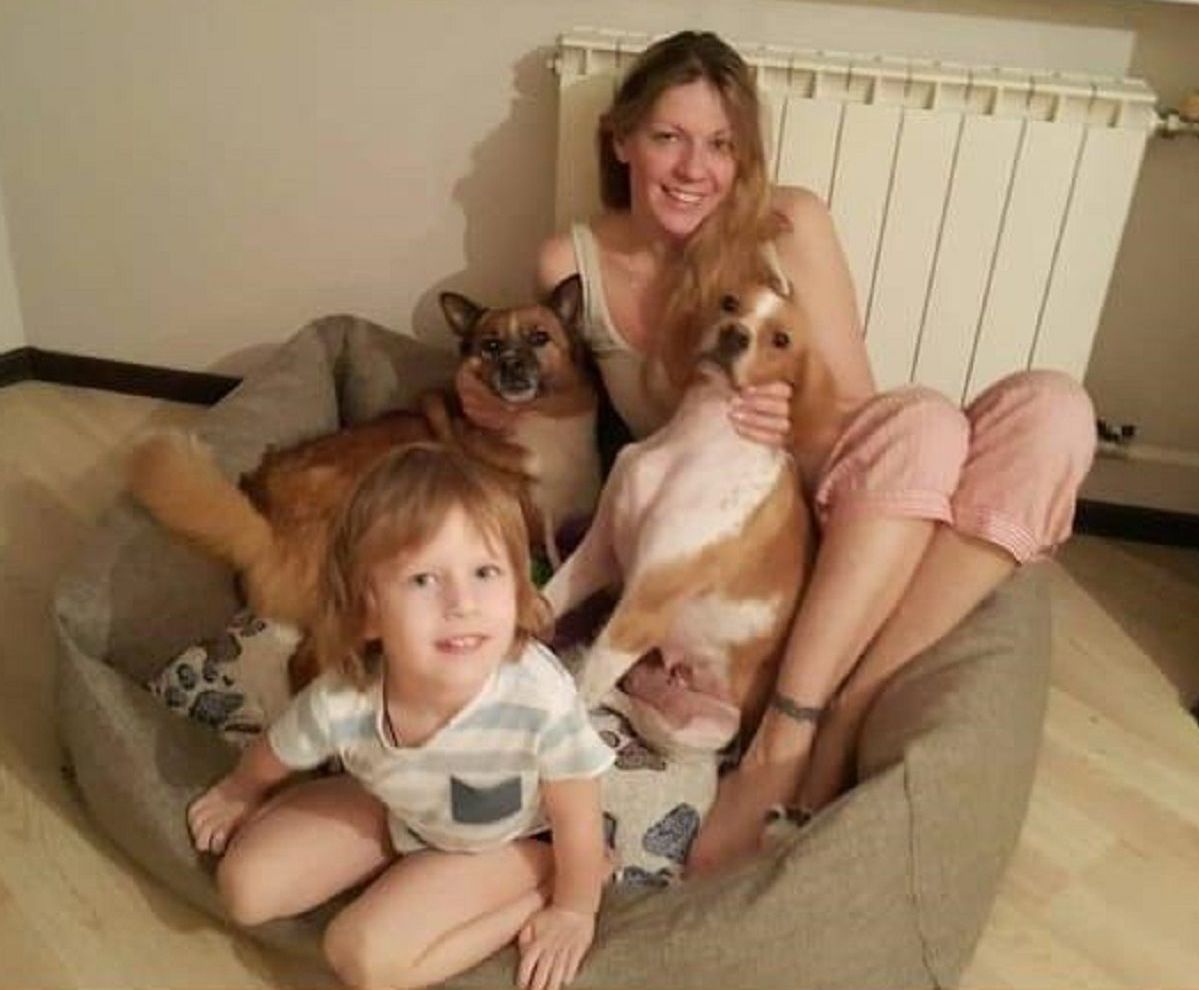
Photo © Bagira Foundation
“But there was one exception to the rule. We sent our Luna (‘Moon’), a pointer by breed, to Israel, and there there are completely different rules. According to their laws, the owner must personally go to where the dog is introduced. Then he needs to send a request to a special authority to the effect that he wants to take this dog away. And so, people flew from Israel to Moscow to get acquainted with our Luna, and they took it for themselves," said Saida.
For a long time it was difficult for Saida to answer the question why people who live so far from Abkhazia suddenly decided to obtain a pet from this country. After all, in every civilised country there are shelters, but there are poor ownerships and not uncommon cases when even in the most prosperous countries one encounters a "vagabond-stray". Otyrba still came up with an answer to this question, and personal experience helped her in this.
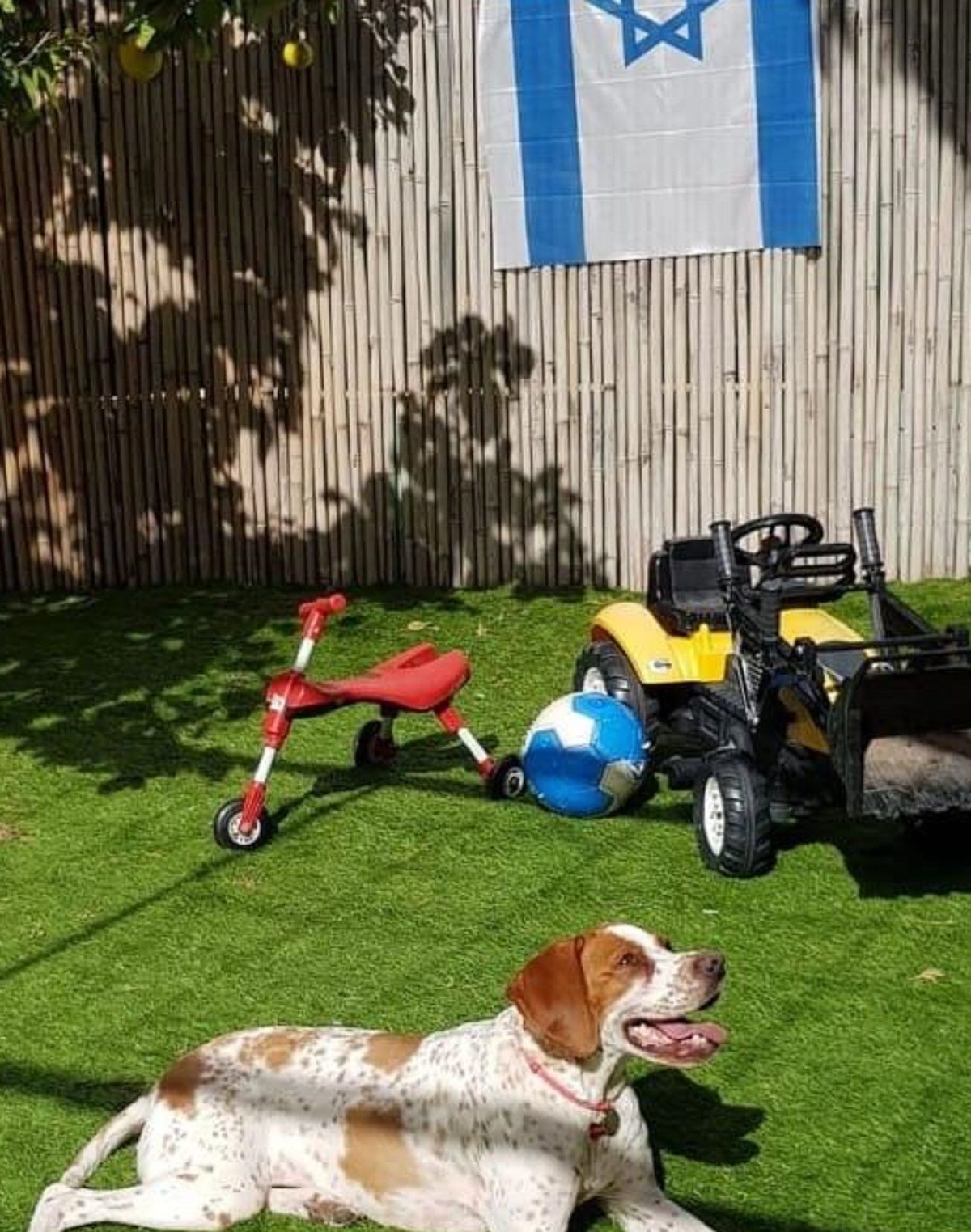
Pointer named Luna moved to Israel © Bagira Foundation
She admitted that after her Bagira’s death, she searched for a long time for a dog that would sink into her soul and found such a friend in one of the Moscow shelters.
"I was looking for a dog that looked like Bagira. I looked at photos on all kinds of social networks and accidentally went to the website of one Moscow shelter. This dog was not like my old one, but when I saw her eyes, I realised that she was mine. Such people choose with their heart, no matter where the pet is," was how Otyrba shared her observations.
The first pet that Saida managed to place was a mixed breed dog named Cupid. He was found at Russian customs and was delivered to Gagra, from where he moved to permanent residence in the suburbs.
Follow Bagira Foundation on Facebook: https://www.facebook.com/AbkhaziaFondBagira/